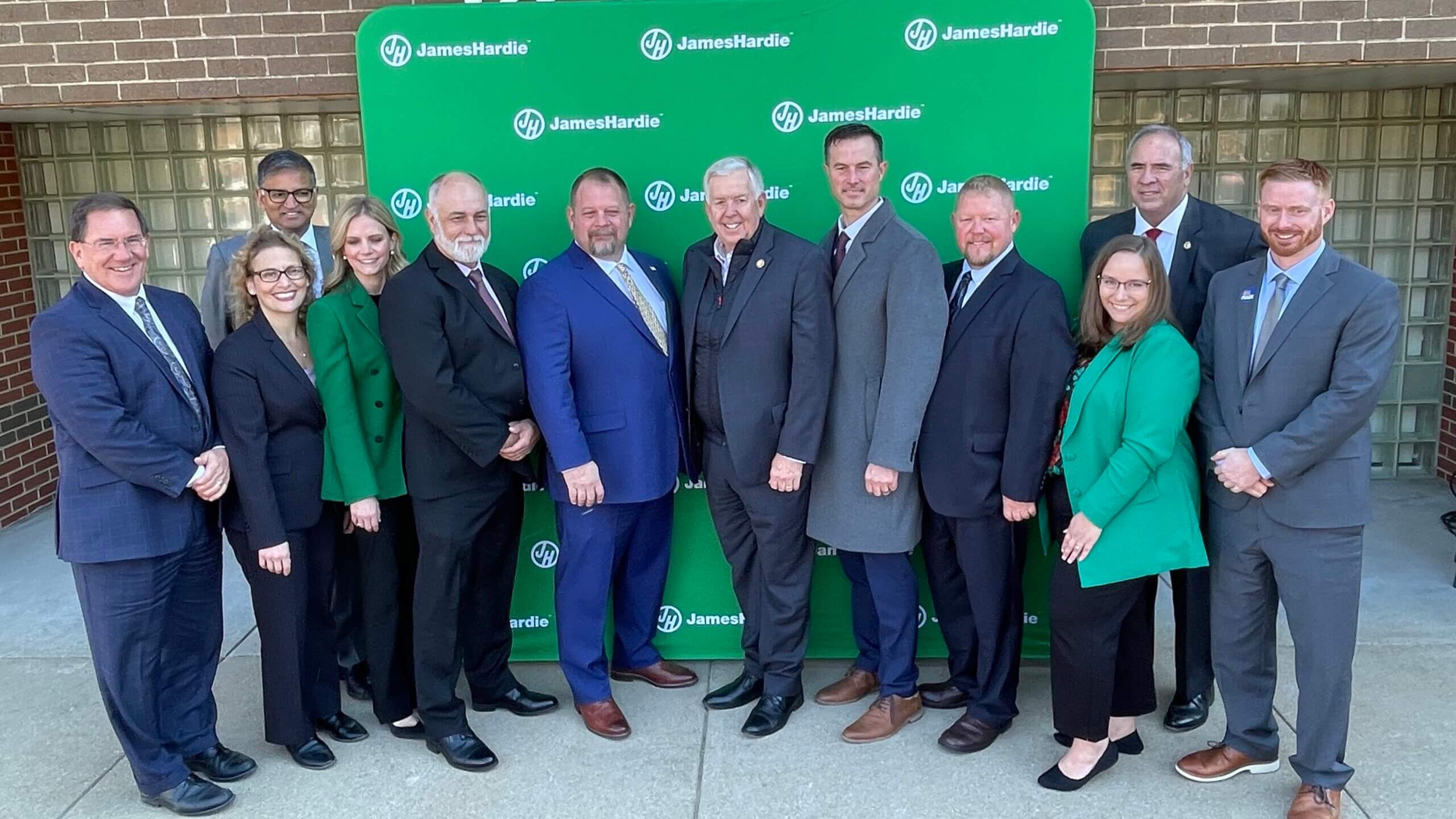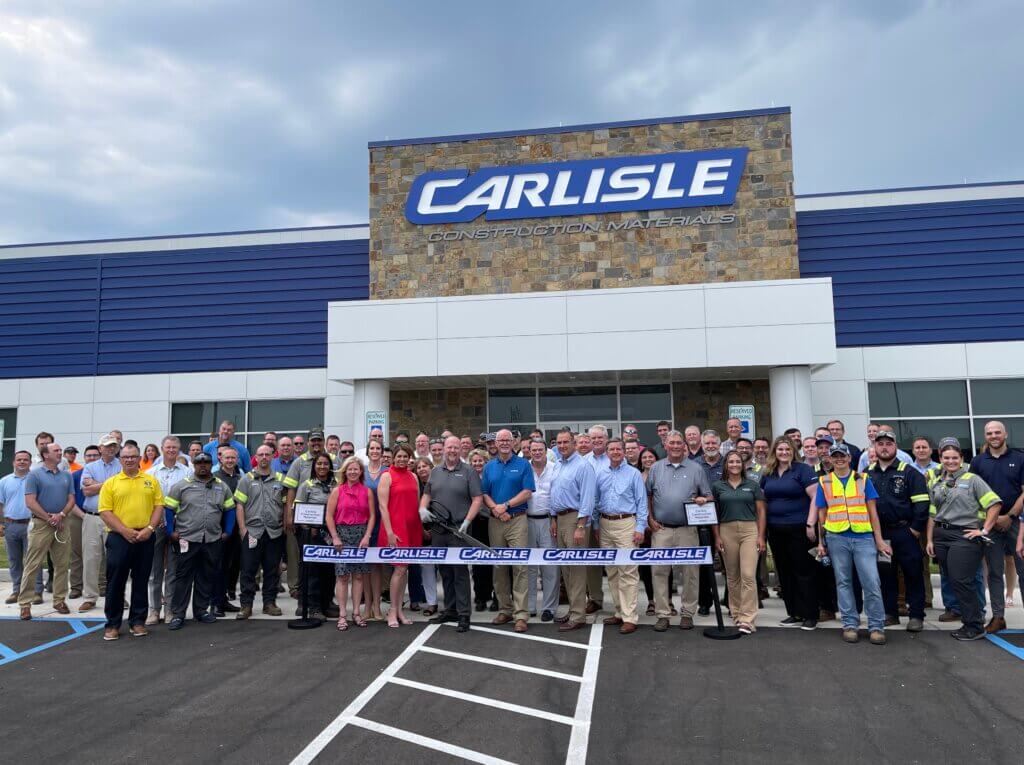Project Examples
The previous content of this report has included a high-level summary, review and analysis of why Missouri has won and lost projects we worked on between FY 2016 and FY 2023. On the following pages, we have included four specific examples of projects we worked, two of which we won and two of which we lost, along with more in-depth details of each project and the reasons for each outcome.
Project Redbird
In October 2021, a site selection consultant contacted Missouri Partnership to assist with finding sites in the state and to compete for “Project Redbird.” Missouri Partnership originally presented five sites from around the state for the company’s consideration. While the company also considered site options from several other markets, Missouri’s main competition came from Illinois where the company already had operations.
“Project Redbird” included a Phase I, which would create 238 new jobs with an average wage of $34.83 per hour. Additionally, it required the construction of a 1,000,000-square-foot manufacturing facility on an 80-acre site, costing several hundreds of millions of dollars in investment for a 24/7 operation.
After several initial rounds of consideration, the company eliminated all Missouri site options, except for one in Crystal City, Missouri. The company identified several project drivers and reasons, which included:
- Proximity to raw materials
- Maximization of shipping range for market
- Strong labor market
- Collaboration & partnerships
- Incentives
- Market growth opportunity
The project ultimately took one year to conclude and was successful thanks to the tireless effort and collaboration by dozens of state, regional, local, public and private partners.

Press conference for James Hardie Building Products Inc.
Project Baker
Project Baker involved UK-based company Marshall, which works in partnership with armed forces and Original Equipment Manufacturers (OEM) around the globe to help their work to protect people in critical situations. Marshall is recognized as a global leader in C-130 support and has a rich and lengthy history of doing business in the U.S. The company was seeking to further expand and establish a U.S.-based subsidiary, Marshall USA.
Missouri began competing for Project Baker in April 2021. After responding to the request for information, the client selected St. Joseph, Missouri, to advance to the short list, which they down selected from an initial list of 110 sites. The St. Joseph team, led by Missouri Partnership, subsequently conducted two virtual site visits with the client team in July and August 2021. The client team then conducted an in-person site visit to St. Joseph in October 2021. Immediately thereafter, the client team identified St. Joseph as one of three finalist locations for Project Baker and issued its final request for information, which Missouri Partnership responded to in November 2021. In January 2022, the client advised Missouri was one of only two finalists. The client team then conducted a final in-person site visit to St. Joseph at the end of January 2022. The client identified the following project drivers and reasons that St. Joseph made the final shortlist:
- Robust skilled labor pipeline & training partnerships
- Missouri’s tradition of aerospace excellence
- Low taxes and stable business environment
- Proximity to Rosecrans Air National Guard Base
- Network of partners and support displayed by the Missouri team working to recruit the company
In February 2022, the client notified the Missouri team they selected our competition as their “preferred bidder,” and they will be moving forward to secure a deal in that other location. They named St. Joseph as their “alternate bidder in reserve,” meaning they would only revisit our location in the unlikely event that they were unable to finalize a deal at the other site. They reported the final decision came down to four key factors:
- Cost of construction was substantially cheaper in the other location
- Facility acquisition
- Commissioning cost
- Other location has stronger aerospace market for potential expansion
The client emphasized the Missouri team and our work on this project exemplified the “best of the best in economic development.” Our team did absolutely everything we could to secure this deal and in the end, the decision reflected matters beyond our control. In April 2023, the client announced the location of this project in Greensboro, North Carolina.
Project Armor and Armor Plus
Project Armor and Armor Plus began in April 2020 as a two-facility, complementary operation looking to expand in Missouri to meet significant increase because of supply chain disturbances and the pandemic. The parent company, Carlisle Companies Incorporated, is publicly traded on the NYSE, has been in existence for 103 years, and has three subsidiary operations in Missouri. Carlisle Construction Materials (CCM) has a vast North American presence and is the single largest producer of single-ply roofing systems.
Project Armor and Armor Plus were competitive in nature with several other states including: Kansas, Arkansas, Iowa, Kentucky, and Illinois. The first phase, Project Armor, included a 455,000-square-foot manufacturing facility designed to produce roofing and waterproofing building materials. Project Armor Plus was to be a second phase including a complementary chemical processing facility preparing raw chemical material for utilization in the Armor manufacturing process. Previously, the company would purchase the processed chemical materials from a third-party vendor and with the supply chain issues rapidly developing in the spring of 2020, CCM explored developing their own chemical processing facility to help mitigate costs.
The J.M. Mullis consultant team engaged with Missouri Partnership and reviewed requests for information from nine communities in the regions of St. Louis and Southeast Missouri. The consulting team made five in-person visits to Missouri beginning mid-May 2020 along with countless virtual calls to work through the project’s needs. The two remaining Missouri sites included Cape Girardeau and Sikeston. Following a final round of community visits, the company selected Sikeston as the preferred Missouri site.
Although the Sikeston Industrial Park site had many strong attributes, the consulting team identified challenges that needed immediate answers for the community to win the project:
- Industrial Park improvements such as street construction and drainage; construction of a retention basin and sanitary sewer; and installation of watermain line
- Widening and signalization of Highway 61
- Extension of rail spur to new facility
- Improvements to US Hwy 60 and the Ingram Overpass
Federal, state, regional and local leaders met weekly to identify multiple funding sources needed to improve the industrial park and logistics in the area, as well as enhance the community. In April 2022, Carlisle Construction Materials announced Sikeston was the preferred location for its latest facility expansion. Partners with the U.S. Economic Development Administration, Delta Regional Authority, the City of Sikeston, Governor’s Cost Share funds, Missouri Department of Transportation, and New Madrid County worked in lockstep to meet the project and community’s needs.
The project broke ground mid-summer 2022 and began operations in June 2023. CCM anticipates hiring 100 employees, and the company invested more than $100,000,000 in the new facility.

Ribbon cutting for CCM
Project Ocean
In September 2021, a consultant contacted Missouri Partnership with a request for information and site options as part of the consultant’s multi-state search on behalf of an established technology corporation client with industry-leading, patented technology. The client needed a 3,000,000-square-foot existing building and/or greenfield site for a large-scale manufacturing facility located within 30 minutes of a regional airport. In addition, the project required substantial utility capabilities, including 61,300 MWh/month average use of electric, 700,000 gallons per day peak production of both water and wastewater.
The client estimated direct job creation of at least 4,000 full-time jobs within two years of commencing operations. The client also estimated the project would require more than $4,000,000,000 dollars in capital investment.
While we distributed the request for information to several areas throughout the state, we only received and provided a competitive site from the St. Louis region.
In October 2021, we were notified the Missouri option made the initial cut, and the consultant team would conduct an in-person site visit. Missouri Partnership immediately pulled the relevant partners together and led the team to plan a site visit to meet the client’s goals and objectives. While the visit went well, the consultant shared a few concerns:
- Community’s ability to handle a project of this size
- Missouri’s “Right to Work” status
- Water infrastructure limitations at the site
- Missouri’s limited experience with special legislation
In December 2021, the consultant notified our team they were no longer considering Missouri for Project Ocean, but they were unable to share additional details about the elimination reason at that point.
In July 2022, we learned Panasonic selected a site in Kansas to locate a $4,000,000,000 electric vehicle battery mega project, and this was Project Ocean. While this was a hard loss, we used it as a learning experience to continue to address Missouri’s lack of “mega sites” and the infrastructure and site improvements needed to be more competitive. We are also excited about the substantial economic benefit to Missouri from this project given its proximity to our state.
This report has included review and analysis of projects Missouri Partnership opened and worked on between FY 2016 and FY 2023. We undertook this report to better understand the source and characteristics of our projects and the reasons Missouri won or was eliminated as a location for a potential project. Our goal is to use this data to guide us to become more competitive for future projects. We also hope our partners and stakeholders will find this report useful as we strive to make Missouri more competitive for new business investment.